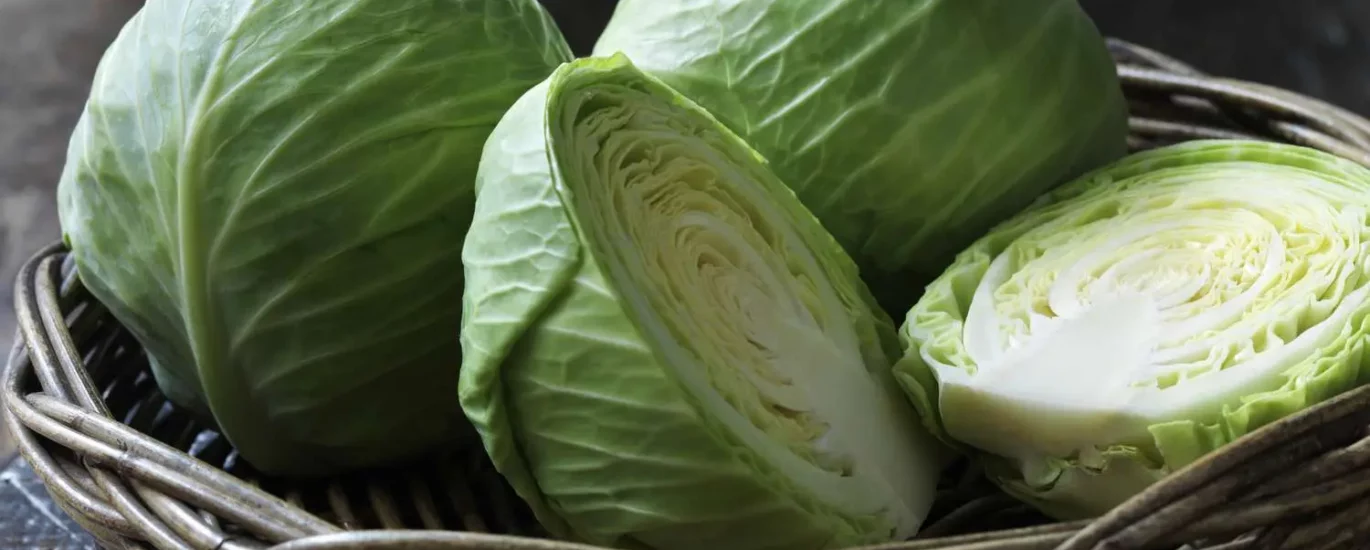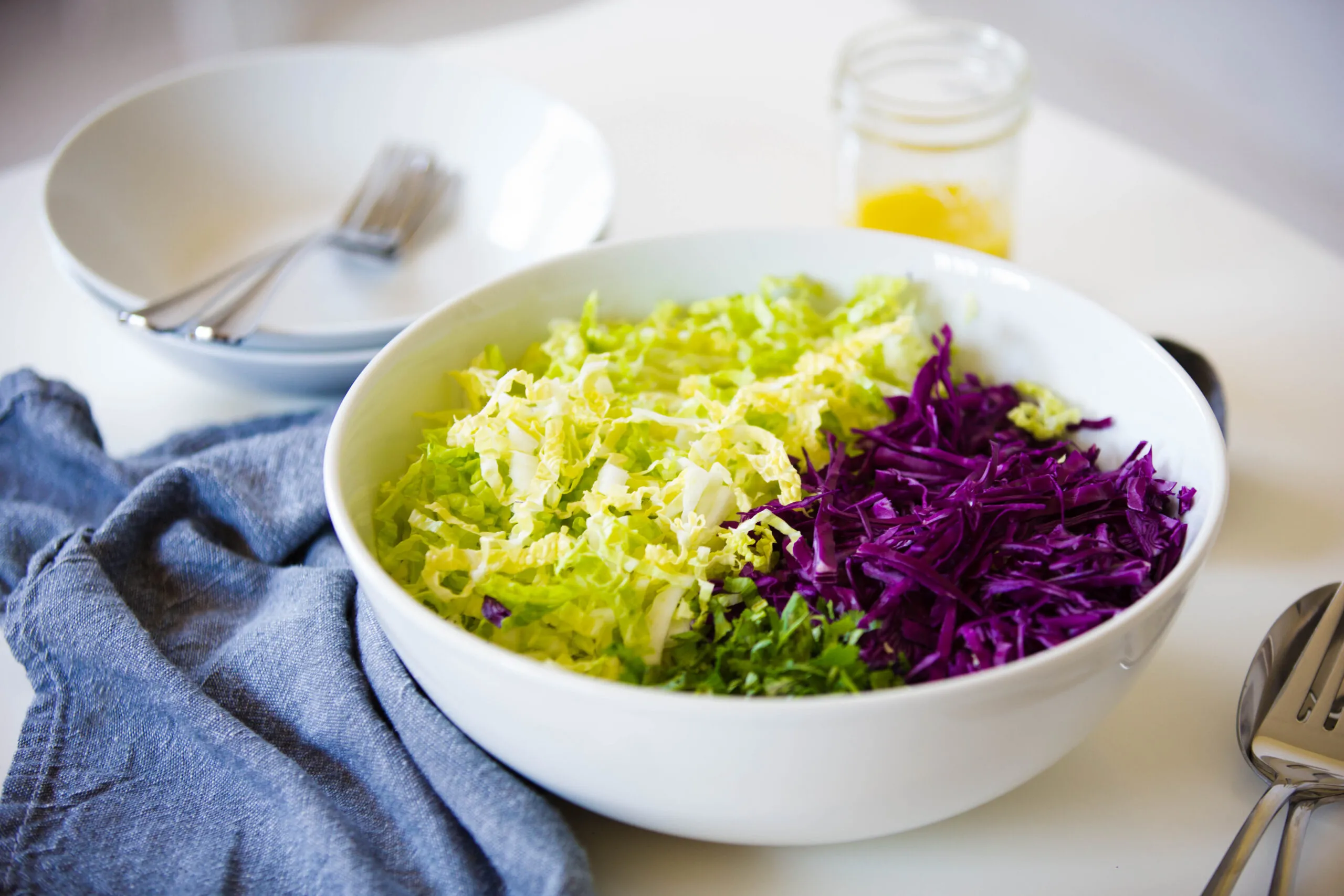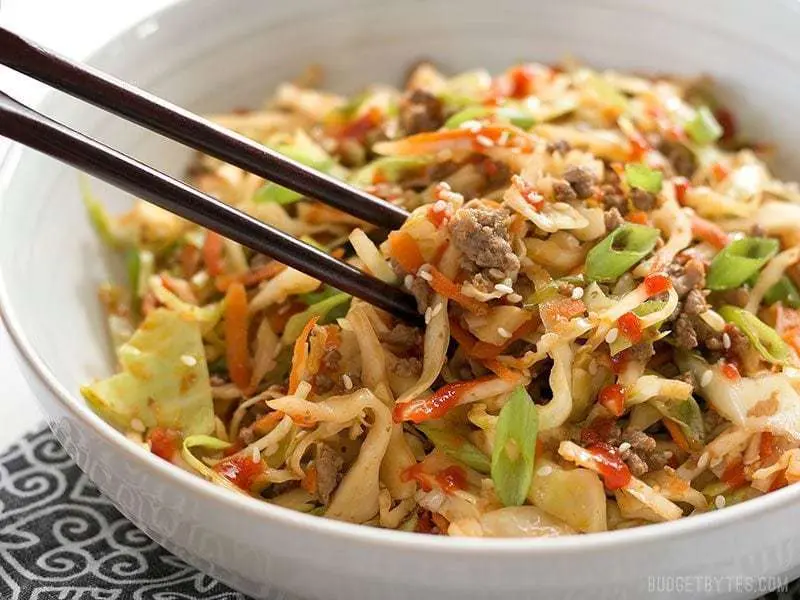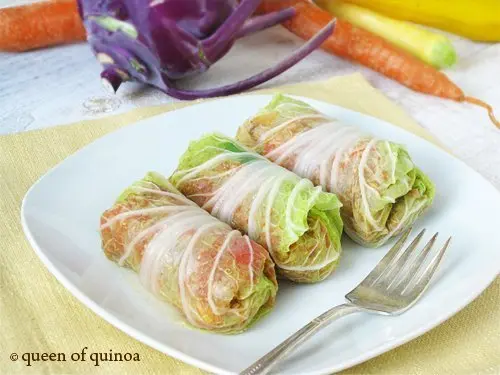

wordpress-seo domain was triggered too early. This is usually an indicator for some code in the plugin or theme running too early. Translations should be loaded at the init action or later. Please see Debugging in WordPress for more information. (This message was added in version 6.7.0.) in /home/sehatnagar.com/public_html/wp-includes/functions.php on line 6114
Losing weight is something which many people are interested in these days. People are looking for natural and effective ways to lose weight and improve their overall health. With so many options available, it can be confusing to figure out what works. Different people use different methods to lose their weight. One of them includes a weight loss diet option. People choose different kinds of foods that are helpful for weight loss. Such kind of food which we will discuss today is “cabbage“. Did you know that cabbage, a simple and nutritious vegetable, could be a powerful tool in your weight loss journey? While cabbage may not be the first thing that comes to mind when thinking about losing weight, it has some amazing benefits that make it worth considering.
In this article, we will explore the wonderful world of cabbage and uncover its many health benefits, especially when it comes to losing weight. We will talk about the essential nutrients found in cabbage and how they can also contribute to your well-being. By learning about cabbage’s role in weight management, we hope to give you the knowledge you need to make smart choices about what you eat. Our goal is to show you just how great cabbage can be for weight loss. We want to highlight its impressive nutritional value and show you that it’s much more than just a boring ingredient in coleslaw. By the end of this article, you’ll have a better understanding of the benefits cabbage offers and be excited to add it to your weight loss plan.
Cabbage is a vegetable that comes in various shapes and colors, known for its versatility in the kitchen. It belongs to the cruciferous vegetable family, which includes other nutrient-packed veggies like broccoli, cauliflower, and kale. Cabbage has been a staple in cuisines around the world for centuries, thanks to its mild flavor and ability to complement a wide range of dishes. However, there are different types of cabbage commonly found in grocery stores, including green cabbage, red cabbage, and Savoy cabbage. Green cabbage is the most common variety, recognized by its round shape and pale green leaves. Red cabbage has a vibrant purple-red color and slightly stronger taste compared to green cabbage. Savoy cabbage stands out with its crinkled and textured leaves, which are tender and delicate.
Now, let’s explore the nutritional profiles of these cabbage varieties. Despite their slight differences in taste and appearance, all types of cabbage offer impressive health benefits. Cabbage is low in calories, making it an excellent choice for those aiming to shed extra pounds. A cup of shredded cabbage contains only about 22 calories, allowing you to enjoy a generous portion without worrying about excessive calorie intake. In addition to being low in calories, cabbage is rich in dietary fiber. Fiber is essential for weight loss as it promotes feelings of fullness, helps regulate appetite, and aids in healthy digestion. A cup of cabbage provides approximately 2 grams of fiber, contributing to your daily fiber intake goals. By incorporating cabbage into your meals, you can increase the volume of your meals without significantly increasing the calorie content.
Moreover, cabbage is packed with essential vitamins and minerals. It is an excellent source of vitamin C, which plays a crucial role in supporting the immune system and promoting healthy skin. Cabbage also contains vitamin K, which is important for blood clotting and bone health. Additionally, it offers smaller amounts of vitamin B6, calcium, potassium, and other nutrients that contribute to overall well-being.
Cabbage’s low calorie and high fiber content make it an ideal food choice for weight loss. By including cabbage in your meals, you can enjoy a satisfying and nutritious vegetable without adding excessive calories. Whether you prefer the crunch of raw cabbage in salads, the tenderness of cooked cabbage in stir-fries, or the added color and flavor of red cabbage in slaws, this versatile vegetable can be a valuable addition to your weight loss journey.
Cabbage is not only a low-calorie vegetable, but it also packs a powerful punch when it comes to its nutrient composition. Let’s explore the impressive array of vitamins, minerals, and antioxidants that make cabbage a nutritional powerhouse.
Cabbage is an excellent source of vitamin C, which is known for its immune-boosting properties. Vitamin C plays a vital role in strengthening the immune system, protecting the body against infections, and promoting collagen production for healthy skin. Additionally, cabbage contains vitamin K, which is essential for blood clotting and bone health. Vitamin B6, another nutrient found in cabbage, supports brain health and helps the body convert food into energy.
Cabbage provides an array of minerals that contribute to overall well-being. It contains calcium, which is crucial for maintaining strong bones and teeth. Additionally, cabbage is a good source of potassium, an essential mineral that helps regulate blood pressure and supports proper heart function. These minerals play a vital role in maintaining a healthy body and can be beneficial during weight loss journeys.
Cabbage contains a variety of antioxidants, including phytonutrients like anthocyanins and glucosinolates. These antioxidants help protect the body against oxidative stress caused by harmful free radicals. Anthocyanins, responsible for the vibrant red and purple colors in red cabbage, have anti-inflammatory and potential anti-cancer properties. Glucosinolates, found in all types of cabbage, are compounds that have been studied for their potential cancer-fighting properties.
The abundance of nutrients in cabbage translates into various health benefits. The high vitamin C content can strengthen the immune system, helping the body fight off illnesses and infections. Vitamin K contributes to proper blood clotting and bone health, reducing the risk of fractures and osteoporosis. Additionally, the antioxidants in cabbage have been linked to reducing chronic inflammation and may play a role in preventing certain types of cancer.
Another noteworthy aspect of cabbage is its high water content. Cabbage is composed of approximately 90% water, making it an excellent hydrating food choice. Staying hydrated is essential during weight loss efforts as it helps maintain proper bodily functions, supports digestion, and promotes healthy skin. Additionally, the high water content of cabbage contributes to feelings of satiety, helping you feel fuller for longer and potentially reducing the urge to snack on calorie-dense foods.
With its impressive nutrient profile and high water content, cabbage not only offers weight loss benefits but also provides a wide range of health advantages. By incorporating this leafy superfood into your diet, you can nourish your body with essential vitamins, minerals, and antioxidants, all while staying hydrated and feeling satisfied during your weight loss journey.
Cabbage is popular for its potential effectiveness in weight management. However, there are scientific reasons behind its positive impact on weight loss. Let’s explore why cabbage can be a valuable addition to your weight loss journey.
Low Energy Density: One of the key factors contributing to cabbage’s weight loss benefits is its low energy density. Energy density refers to the number of calories in a given volume of food. Cabbage has a low energy density, meaning it provides fewer calories while offering a larger portion of food. This can be highly beneficial for weight loss because you can eat a satisfying amount of cabbage without consuming excessive calories.
High Fiber Content: Cabbage is a great source of dietary fiber, and this high fiber content plays a significant role in weight management. Fiber is known for promoting feelings of fullness and satiety, which can help reduce overeating and control cravings. When you consume cabbage, the fiber content swells in your stomach, creating a sense of fullness that can curb hunger pangs.
Improved Digestion: Another way cabbage contributes to weight loss efforts is by improving digestion. Cabbage contains a significant amount of dietary fiber, which adds bulk to the stool and supports healthy bowel movements. Adequate fiber intake helps prevent constipation and promotes regularity, ensuring efficient elimination of waste from the body. By promoting a healthy digestive system, cabbage can help prevent bloating and discomfort, allowing you to maintain a consistent and comfortable weight loss journey.
Regulating Blood Sugar Levels: The fiber content in cabbage helps to regulate blood sugar levels. By slowing down the absorption of glucose in the bloodstream, cabbage can contribute to better blood sugar control. Stable blood sugar levels are essential for weight management as they help prevent energy crashes and cravings for unhealthy snacks.
Incorporating cabbage into your weight loss efforts can bring multiple benefits. Its low energy density allows you to enjoy a satisfying portion without consuming excessive calories. The high fiber content promotes feelings of fullness, curbing overeating and cravings. Additionally, cabbage’s potential role in improving digestion and regulating blood sugar levels can support a healthier and more balanced weight loss journey. By embracing the power of cabbage, you can take a step closer to achieving your weight loss goals in a natural and nutritious way.
Cabbage has found its way into various weight loss diets, with one of the most well-known being the cabbage soup diet. This diet involves consuming large amounts of cabbage soup alongside a restricted selection of other low-calorie foods. While the cabbage soup diet may result in short-term weight loss due to its low calorie content, it is important to understand the benefits and limitations of such diets for weight loss.
The cabbage soup diet and similar diets that heavily rely on cabbage offer benefits in terms of calorie control. Cabbage is low in calories and can be a filling addition to meals, helping to create a calorie deficit for weight loss. However, these diets often lack variety and may not provide all the essential nutrients needed for long-term health.
Rather than following extreme diets, it is important to adopt a balanced approach to weight loss. This involves incorporating a variety of nutrient-dense foods into your meals, including cabbage. Cabbage can be enjoyed in creative and healthy ways that not only support weight loss but also provide a range of flavors and textures.
One option is to incorporate cabbage into salads. Finely shredded cabbage can add a satisfying crunch to a mixed green salad, providing extra volume without a significant increase in calories. You can also create a refreshing coleslaw with a light dressing for a delicious and low-calorie side dish.
Stir-fries are another way to include cabbage in weight loss diet. Sautéing cabbage with other colorful vegetables and lean proteins creates a flavorful and nutrient-packed meal. Add a dash of low-sodium soy sauce or spices for an extra kick of flavor without adding excessive calories.
If you’re looking for delicious and nutritious ways to incorporate cabbage into your weight loss journey, here are some mouthwatering recipes that will satisfy your taste buds while helping you achieve your goals. These recipes are easy to prepare, packed with flavor, and feature cabbage as a star ingredient.

Nutritional Information (per serving):


These cabbage recipes provide a range of flavors and textures while keeping calories in check. Incorporating them into your weight loss diet allows you to enjoy the nutritional benefits of cabbage in delicious and satisfying ways. Get creative in the kitchen, experiment with these recipes, and savor the goodness of cabbage as you progress towards your weight loss goals.
While cabbage is a nutritious and beneficial vegetable for weight loss, some individuals may experience concerns or side effects associated with its consumption. It’s important to address these potential issues and provide strategies to minimize any discomfort. Here are some considerations to keep in mind when incorporating cabbage into your diet:
In conclusion, cabbage is indeed a powerhouse vegetable for weight loss. With its low calorie, high fiber content, it promotes feelings of fullness, aids digestion, and helps regulate blood sugar levels. Incorporating cabbage into your balanced diet can support your weight loss efforts in a delicious and nutritious way. From cabbage salads to stir-fries and stuffed cabbage rolls, there are numerous creative recipes to explore. Remember to approach weight loss with a balanced perspective, and consult with a healthcare professional if you have any concerns or specific health conditions. Embrace the potential of cabbage as a natural and effective tool on your weight loss journey, and enjoy the many benefits it has to offer.
Read Also:
How Many Almonds To Eat Per Day For Weight Loss?